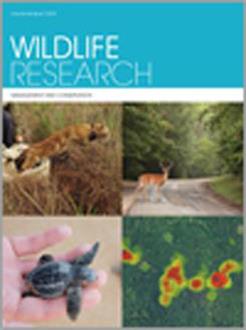Context. Education programs concerning wildlife conservation and safety typically include the biology of the wildlife species and public safety information. Information retention using traditional means such as signs, pamphlets and static presentations have been shown to be minimally effective at changing attitudes and behaviour when it comes to human–wildlife interactions.
Aims. An experiential education program with interactive modules was designed to support information retention in participants. On the basis of previous research, a targeted experiential education program focusing on perceptions of risk and preventative behaviours was produced to increase people’s comfort level when in coyote habitat.
Methods. Pre-, post- and retention-test questionnaires were used to study differences in attitudes and risk perception instantly following (post-test) as well as 1 year after participating in the program (retention test).
Key results. Overall, the program had significant positive effects on participants’ attitudes, and significant decreases in their overall perception of risk in terms of potential interaction with coyotes. These positive effects were observed instantly and 1 year after participants were surveyed.
Conclusions. Targeted and interactive educative experiences can have impacts on participants’ perceptions over the long term. This technique might be useful when dealing with human–wildlife interactions.
Implications. Designing targeted educative experiences for people may also support lasting positive change in human–wildlife interactions.






